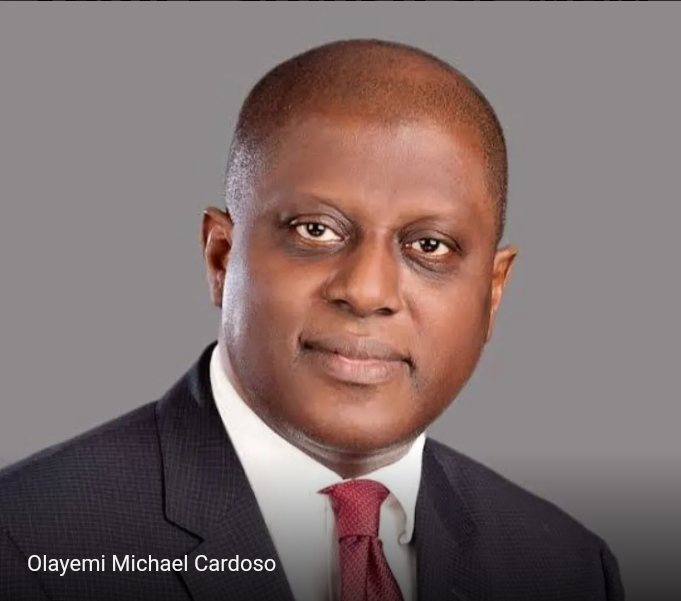
Cardoso: Driving Investor Confidence Through FX Backlog
By Abdulrahman Abdulraheem
Governance is known all over the world to be a continuum. When people get into positions of authority, they are expected to inherit assets and liabilities from their predecessors. They are meant to build on the assets they meet on ground while defying and, if possible, fixing the labilities.
While Central Bank of Nigeria (CBN) Governor, Olayemi Cardoso, can be said to have inherited more liabilities than assets, he never pitied himself or asked to be pitied. He just rolled up his sleeves, hit the ground running and got on the job. He knew the kind of challenge that awaited him before accepting the job. So, he had no time to wallow in lamentations and blame games.
One of the early demons he had to contend with was the issue of outstanding foreign exchange backlog involving foreign airlines and other multinationals who wanted to repatriate their funds abroad. The matter which got elongated, caused a couple of diplomatic rows and made these foreign companies doubt their ability to continue doing businesses in Nigeria. In fact, according to reports, some other potential foreign investors doubted the conduciveness of the business environment in Nigeria.
International airlines had protested trapped funds in various banks and their inability to repatriate them. The International Air Transport Association (IATA) had, in August 2022, criticised Nigeria and other African countries for not allowing international airlines to repatriate their profits.
“Nigeria was in a state where there was a loss of confidence. So, clearing the backlog was a major step in building credibility.
“People were not abiding by the rules, and it was very important that we addressed this so the market could function properly. There was pushback because there were those who were used to a certain way. A portion of the volatility was because of pushback. With time, stakeholders became more comfortable with how the market was operating. A good number of portfolio investors came in, left, and came in again,” Cardoso said at a BusinessDay CEO Forum recently.
He had to defy odds to commence the process of releasing millions of dollars in batches to settle the backlogs. As he was settling the backlog, sanity was gradually returning to the market and both the existing and potential foreign investors were having their hope in the viability of the Nigerian economy renewed. The settlement also caused some stability to the Naira and added significant value to the country’s external reserves.
The CBN governor himself said the clearance of a $7 billion foreign exchange backlog was part of the bank’s overall strategy to stabilise the exchange rate and curb imported inflation, spurring confidence in the banking system and the economy.
The singular step helped to raise foreign investments into the country to $3.38 billion in the first quarter (Q1) of 2024, from $1.09 billion reported in the previous quarter, according to the capital importation report by the National Bureau of Statistics (NBS). This is an increase of 210.2 percent. Year-on-year, foreign capital inflows rose by 198.1 percent from $1.13 billion recorded in Q1 of 2023.
Portfolio investment ranked top with $2.08 billion, accounting for 61.5 percent of the investment.
Nigeria’s external reserves also rose to $35.05 billion on July 8, 2024— the highest since May 30, 2023.
Cardodo noted that the market is witnessing relative calmness through various reforms deployed by the apex Bank.
“When we looked at the backlog clearance, we saw that this CBN governor wanted a change, an outlook that tells investors that the investment climate has changed,” Ike Ibeabuchi, an investor in Nigeria, Canada and the UK, said.
“A team of investors that I know are thinking of setting up here by October this year, and I have also increased my portfolio investments by 35 percent between April and June this year,” he added.
Muda Yusuf, chief executive officer of the Centre for the Promotion of Private Enterprise, said the clearance “is a very significant thing that needs to happen. There will be more stability. It is a good development, and will boost investors’ confidence.”
Last Line
The clearance of FX backlogs is a significant step towards meeting Nigeria’s obligations and assuring the international community that the country is safe and sound for investments that will benefit all parties. Government cannot on one hand be battling with youth unemployment and mass poverty and on the other hand be frustrating credible investors who are adding value to the economy.
Cardoso has taken it upon himself to do everything right with Nigeria’s partners in progress so that they will not only expand their businesses here but their success stories will also encourage others to come and invest in the country. This trajectory has a long-term positive impact on the strength of the Naira, value of the foreign reserves and strength of the economy.
Abdulrahman Abdulraheem is the author of “eNaira Revolution: A Peep into Nigeria’s Cashless Future”
